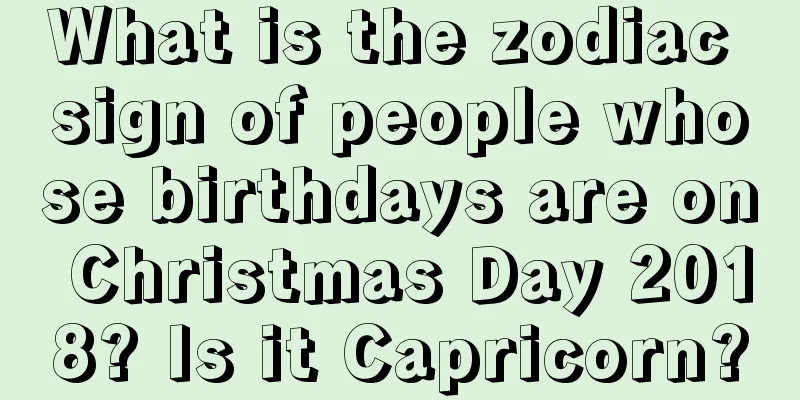What is the origin of the Chinese Valentine's Day? What are the do's and don'ts in the 2020 Chinese Valentine's Day lunar calendar?

Introduction: Different festivals have different origins, and the Chinese Valentine's Day is no exception. So what is the origin of the Chinese Valentine's Day, and what are the do's and don'ts in the 2020 Chinese Valentine's Day lunar calendar? Shuimoxiansheng.com has carefully compiled detailed information about the seventh month of the lunar calendar in 2020. Come to Shuimoxiansheng.com’s special topic on the seventh month of the lunar calendar in 2020 to learn about the auspiciousness and inauspiciousness of the day!What is the origin of the Chinese Valentine's Day?The origin of Qixi Festival: originated from the worship of nature"Qixi Festival" originated from people's worship of nature. According to historical documents, records about Altair and Vega appeared at least three or four thousand years ago, as people's understanding of astronomy and the emergence of textile technology increased. People's worship of stars goes far beyond Altair and Vega. They believe that there are seven stars in the east, west, south and north representing directions, collectively known as the Twenty-Eight Mansions. Among them, the Big Dipper is the brightest and can be used to identify directions at night. The first star of the Big Dipper is called Kuixing, also known as Kuishou. Later, with the establishment of the imperial examination system, the top scorer in the imperial examination was called "the best scholar in the world". Scholars called the Qixi Festival the "Kui Xing Festival", also known as the "Book Drying Festival", which retained traces of the earliest origin of the Qixi Festival from star worship. The origin of Qixi Festival: originated from the worship of time "Qixi Festival" also originated from the ancient people's worship of time. "Qi" is homophonic with "qi", and both the month and the day are "qi", giving people a sense of time. The ancient Chinese called the sun, moon and the five major planets, Mercury, Mars, Jupiter, Venus and Saturn, together the "Seven Luminaries". The number seven represents a period of time in folk culture, and "seven sevens" is often used as the final number when calculating time. In old Beijing, when holding a memorial service for the deceased, it was usually considered complete after the 77th day. The "week" calculated based on the "Nanayo" is still retained in Japanese. “Qi” is homophonic with “ji”, and “Qiqi” means double luck, so it is an auspicious day. In Taiwan, July is known as the month of "happiness and fortune". Because the shape of the word "喜" in cursive script resembles the continuous writing of "七十七", seventy-seven years old is also called "喜寿". The origin of Qixi Festival: originated from the worship of numbers "Qixi" is also a phenomenon of number worship. In ancient times, people listed the first day of the first lunar month, the third day of the third lunar month, the fifth day of the fifth lunar month, the seventh day of the seventh lunar month, the ninth day of the ninth lunar month, the second day of the second lunar month (which indicates doubles), and the sixth day of the sixth lunar month (which is a multiple of three) as the "seven days" of auspicious celebrations. "Seven" is the number of beads in each column of the abacus. It is romantic and rigorous, giving people a mysterious beauty. "Qi" is homophonic with "wife", so Qixi has largely become a festival related to women. The origin of Qixi Festival: originated from fertility worship "Seven seven" is the life cycle. "Huangdi Neijing·Suwen·Shanggu Tianzhen Lun": "Male no more than 88 years old, female no more than 77 years old, and then the essence of heaven and earth is exhausted." It says that male has one cycle at 8 years old, and female has one cycle at 7 years old. When a girl is 7 years old, her kidney energy is strong, her teeth change and her hair grows longer; at the age of 27, her menstruation arrives and her Conception channel is unblocked. Tiangui is the essence of the kidneys and the Ren and Du meridians. According to traditional Chinese medicine, they are "the sea of yin and yang in the body and the origin of the five elements." In other words, menstruation will occur after the 27th day of pregnancy, and children can be conceived. Panax notoginseng has balanced kidney qi, and the last teeth grow fully and develop to maturity. At forty-seven, the muscles and bones are strong, the hair is very long, and the body is strong and healthy. It has reached the peak. At the age of 57, the Yangming pulse weakens, the face starts to turn yellow, and the hair starts to fall out. Sixty-seven: "The three yang pulses weaken at the top, the face is all scorched, and the hair begins to turn white." The 49th day of pregnancy is when "the Ren meridian is weak, the Taichong meridian is weak, the Tiangui is exhausted, and the Didao is blocked, so the body is deteriorating and there is no child." This is the end of a life cycle. The number "seven" refers to the West, so the meeting of seven on seven should be the birth of the end. "The Book of Changes·Fu Gua": "To repeat its way, and come back after seven days is the way of Heaven." Kong Yingda's commentary: "After the Yang energy of the sky is extinguished, it will take only seven days for the Yang energy to be reborn. This is the natural law of Heaven, so it is called the way of Heaven." "Come back" means to go and come back, that is, to be reborn, the cycle of reincarnation, so after 49 days the soul dissipates, and after another 49 days the soul is full. What are the do’s and don’ts in the 2020 Chinese Valentine’s Day lunar calendar?Lunar calendar: July 7, 2020 Gregorian calendar: August 25, 2020, Tuesday, Virgo [Today's old almanac is suitable] pray for blessings, get married, move to take up a post, fast and offer sacrifices, seek offspring, move into a house, seek wealth, break ground, start drilling, remove mourning clothes, accept betrothal gifts, open the market, build a house, erect pillars, raise beams, receive wealth, stop planting, take livestock, go to school, cut clothes, wear a crown and tie [Today's old almanac is not suitable] litigation, bed installation, construction, groundbreaking, burial, travel, go out to work, seek medical treatment. 2020 almanac is suitable - pray for blessings, get married, move to take up a post, fast and offer sacrifices, seek offspring, move into a house, seek wealth, break ground, start drilling, remove mourning clothes, accept betrothal gifts, open the market, build a house, erect pillars, raise beams, receive wealth, stop planting, take livestock, go to school, cut clothes, wear a crown and tieThe taboos in the 2020 lunar calendar: litigation, bed installation, construction, groundbreaking, burial, travel, seeking medical advice How can one find the destined one in such a vast sea of people? When will the marriage begin? Welcome to click on the "Premium Calculation" below to make predictions in advance. I wish you find your destined person soon! |
Recommend
What are the traditional customs of the Ghost Festival? Is the Ghost Festival a legal holiday?
The fifteenth day of the seventh lunar month every...
Is it suitable to pick up the car on June 7, 2019?
The memory of June is accompanied by scorching he...
Is it not appropriate to hold a funeral on the third day of the fourth month of 2020? Analysis of today's hexagrams!
Introduction: Generally, an auspicious day is requ...
Analysis of the lunar calendar for August 12, 2019! What day is it?
Someone said: Time goes by so quickly every day, ...
When is the Dragon Raising its Head on February 2, 2022? Is that an auspicious day?
Speaking of the Dragon Raising its Head, I believe...
What is the direction of the God of Happiness on September 30th of the lunar calendar in 2021? In which direction?
In September, chrysanthemums bloom proudly in the ...
Is the Dragon Boat Festival 2018 a suitable time to open a business? What should you pay attention to when opening a business?
Introduction: Opening a business is a major event,...
Daily analysis of the eighth day of the twelfth lunar month in 2021. Is it a good day to set up the bed?
Every day is good or bad, so let’s take a look at ...
Is the Civil Affairs Bureau open on the Autumnal Equinox? Can I register for a marriage certificate on the Autumnal Equinox in 2019?
Getting married is a major event in life. In addit...
Is it a good day to open a new store on June 5, 2019?
The sixth month of the lunar calendar is also kno...
What are the legends about Valentine's Day? What is the cultural significance?
When it comes to Valentine's Day, everyone qui...
Selection of auspicious days for bed installation in February of the lunar calendar in 2021. Which days are suitable for bed installation?
Although setting up the bed is a relatively common...
Can we go to the temple to burn incense during the Qingming Festival in 2019? What are the etiquettes of burning paper during the Qingming Festival?
Can I go to the temple to burn incense during the ...
Is it auspicious to have a marriage proposal on the eighth day of the twelfth lunar month in 2020? Is the marriage proposal one of the six ceremonies?
Introduction: Generally, it is necessary to choose...
What is the zodiac sign of a child born on July 15th of the lunar calendar in 2020?
I believe everyone is familiar with the issue of z...









